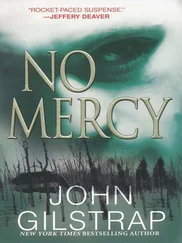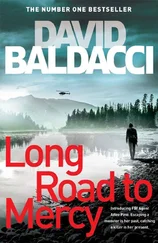Andrea Dworkin - Mercy
Здесь есть возможность читать онлайн «Andrea Dworkin - Mercy» весь текст электронной книги совершенно бесплатно (целиком полную версию без сокращений). В некоторых случаях можно слушать аудио, скачать через торрент в формате fb2 и присутствует краткое содержание. Жанр: Старинная литература, на английском языке. Описание произведения, (предисловие) а так же отзывы посетителей доступны на портале библиотеки ЛибКат.
- Название:Mercy
- Автор:
- Жанр:
- Год:неизвестен
- ISBN:нет данных
- Рейтинг книги:3 / 5. Голосов: 1
-
Избранное:Добавить в избранное
- Отзывы:
-
Ваша оценка:
- 60
- 1
- 2
- 3
- 4
- 5
Mercy: краткое содержание, описание и аннотация
Предлагаем к чтению аннотацию, описание, краткое содержание или предисловие (зависит от того, что написал сам автор книги «Mercy»). Если вы не нашли необходимую информацию о книге — напишите в комментариях, мы постараемся отыскать её.
Mercy — читать онлайн бесплатно полную книгу (весь текст) целиком
Ниже представлен текст книги, разбитый по страницам. Система сохранения места последней прочитанной страницы, позволяет с удобством читать онлайн бесплатно книгу «Mercy», без необходимости каждый раз заново искать на чём Вы остановились. Поставьте закладку, и сможете в любой момент перейти на страницу, на которой закончили чтение.
Интервал:
Закладка:
helped to organize demonstrations by calling people on the
phones and I helped to write leaflets. They didn’t really believe
in rape, I think. I couldn’t ask anyone or tell anyone because
they would just say how I was bourgeois, which was this
word they used all the time. Women were it more than
anybody. They were hip or cool or hipsters or bohemians or
all those words you could see in newspapers on the Low er East
Side but anytime a woman said something she was bourgeois.
I knew what it meant but I didn’t know how to say it w asn’t
right. They believed in nonviolence and so did I, one hundred
percent. I w ouldn’t hurt anybody even if he did rape me but he
probably didn’t. Men were supposed to go crazy and kill
someone if he was a rapist but they wouldn’t hurt him for raping
me because they didn’t believe in hurting anyone and because I
was bourgeois and anything that brought me down lower to the
people was okay and if it hurt me I deserved it because if you
were bourgeois female you were spoiled and had everything and
needed to be fucked more or to begin with. At the Student Peace
Union there were boys m y age but they were treated like grown
men by everyone around there and they bossed me around and
didn’t listen to anything I said except to make fun o f it and no one
treated me as if I knew anything, which maybe I didn’t, but the
boys were pretty ignorant pieces o f shit, I can tell you that. I was
confused by it but I kept working for peace. These boys all called
momma at home; I heard them. I didn’t. There were adults,
some really old, at the War Resisters League but to me they
weren’t anything like the adults from school. They were heroes
to me. They had gone to jail for things they believed in. They
weren’t afraid and they didn’t follow laws and they didn’t act
dead and they had sex and they didn’t lie about it and they didn’t
act like there was all the time in the world because they knew
there wasn’t. They stood up to the government. They weren’t
afraid. One had been a freedom rider in the South and he got


beaten up so many times he was like a punched-out prizefighter.
He could barely talk he had been beaten up so much. I didn’t try
to talk to him or around him because I held him in awe. I thought
I would be awfully proud if I was him but he wasn’t proud at all,
just quiet and shy. Sometimes I wondered if he could remember
anything; but maybe he knew everything and was just humble
and brave. I have chosen to think so. He did things like I did,
typed and put out mailings and put postage on envelopes and ran
errands and got coffee; he didn’t order anyone around. They
were all brave and smart. One wrote poems and lots o f them
wrote articles and edited newsletters and magazines. One wrote
a book I had read in high school, not in class o f course, about
freedom and utopia, but when I asked him to read a poem I
wrote— I asked a secretary who knew him to ask him because I
was too shy— he wouldn’t and the secretary said he hated
women. He had a wife and there was a birthday party for him
one day and his wife brought a birthday cake and he wouldn’t
speak to her. Everyone said he had boys. His wife was
embarrassed and just kept talking, just on and on, and everyone
was embarrassed but no one made him talk to her or thank her
and I stayed on the outside o f the circle that was around him to
think if it was possible that he hated women, even his wife, and
w hy he would be mean to her as if she didn’t exist. Y o u ’d thank
anyone for a birthday cake. From his book I thought he was
wise. I thought he loved everyone. And if he hated women and
everyone knew it how come they were so nice to him because
hate wasn’t nonviolence. When he died a few years later I felt
relieved. I wondered if his wife was sad or if she felt relieved. I
suppose she was sad but why? I thought he was this one hateful
man but the others were the great I-Thous, the real I-Thous;
fighting militarism; wanting peace; writing; I wanted to be the
same. The I-Its were the regular people on the streets dressed in
suits all the same like robots busy going to business and women
with lacquered hair in outfits. But when the boys who wanted to


be conscientious objectors came in for help there were always
a lot o f jokes about rape. I didn’t see how you could make
jokes about rape i f you were against violence; maybe rape
barely existed at all but it was pretty awful. The pacifists and
w ar resisters would counsel the conscientious objectors about
what to say to the draft boards. Vietnam was pulling all these
boys to be killers. The draft board always asked what the c. o. ’s
would do i f their mother was raped or their girlfriend or their
sister and it was a big joke. The pacifists and the c. o . ’s would
say things like they would let her have a good time. I don’t
remember all the things they said but they would laugh and
jo k e about it; it always made me sort o f sick but if I tried to say
something they w ouldn’t listen and I didn’t know what to say
anyway. Eventually the pacifists would tell the c. o. ’s the right
w ay to answer the question. It was a lofty answer about never
using violence under any circumstance however tragic or
painful but it was a lie because none o f them ever thought it
was anything to have their girlfriend raped or their mother.
They always thought it was funny and they always laughed; so
it wasn’t violence because they never laughed at violence. So
I’m not sure i f rape even really existed because these pacifists
really cared about violence and they never would turn their
backs on violence. They cared about social justice. They cared
about peace. They cared about racism. They cared about
poverty. They cared about everything bad that happened to
people. It was confusing that they didn’t care about rape, or
thought it was a joke, but then I wasn’t so sure what rape was
exactly. I knew it was horrible. I always had a picture in my
mind o f a woman with her clothes torn, near dead, on the floor,
unable to move because she was beaten up so bad and hurt so
much, especially between her legs. I always thought the Nazis
had done it. The draft board always asked about the Nazis:
would you have fought against the Nazis, suppose the Nazis
tried to rape your sister. They would rehearse how to answer the


Интервал:
Закладка:
Похожие книги на «Mercy»
Представляем Вашему вниманию похожие книги на «Mercy» списком для выбора. Мы отобрали схожую по названию и смыслу литературу в надежде предоставить читателям больше вариантов отыскать новые, интересные, ещё непрочитанные произведения.
Обсуждение, отзывы о книге «Mercy» и просто собственные мнения читателей. Оставьте ваши комментарии, напишите, что Вы думаете о произведении, его смысле или главных героях. Укажите что конкретно понравилось, а что нет, и почему Вы так считаете.












